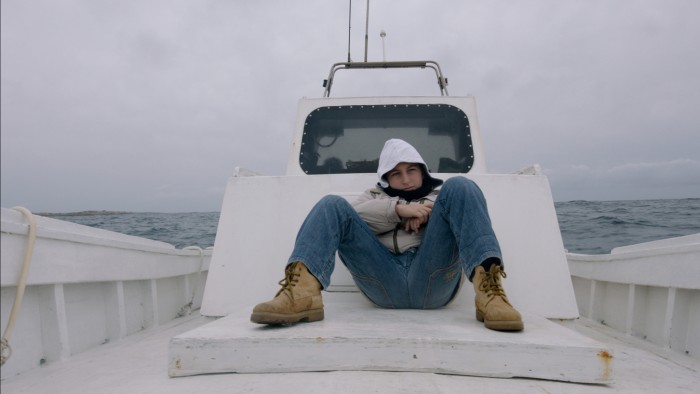 Amir Soltani is covering the Berlin International Film Festival for The Film Experience this year, our first time at Berlinale!. Tonight, previous Venice winner, Gianfranco Rosi's Fuocoammare.
Amir Soltani is covering the Berlin International Film Festival for The Film Experience this year, our first time at Berlinale!. Tonight, previous Venice winner, Gianfranco Rosi's Fuocoammare.
Gianfranco Rosi shocked the film world with his Golden Lion win at Venice for Sacro GRA a few years ago. At Berlinale, the true shock would be for his latest film, Fire at Sea (Fuocoammare), to leave the festival empty-handed. The Italian maestro’s seamless hybrid of documentary and fiction is a self-reflexive and compassionate meditation on Italy’s crisis of cultural identity in the face of an unprecedented wave of refugee migration.

On the island of Lampedusa near the coast of Sicily, refugees from Africa and the Middle East arrive in endless waves, hoping to travel further into Europe. The island’s imposing, rocky shores have become a haunting death bed for thousands of men and women who lose their lives to exhaustion, dehydration and infections. Coastal guards, Italian police and doctors are ever present in the area. But for the locals who live on the island, a community comprised mostly of modest, religious fishermen, life goes on rather unperturbed. Traditional music plays on the radio, elderly women make their homes, and 12-year-old Samuele attends school and learns the tricks of fishing and making slingshots. This island is where tragic despair comes to find the prospect of hope.
Rosi’s study of the locals is patient and warm, affectionately embracing the region’s traditions, music and cuisine. The filmmaker’s approach is also tinged with a deadpan sense of humor embodied by Samuele’s charming joie de vivre. The boy’s vision problems and his attempts to learn English become sly allegories for Italy’s evolving relationship with its ethnic diversity. That he’s forced to close his comfortable right eye and force the lazy left one to see symbolizes something larger about his country’s culture is hard to miss.
Rosi is equally observant with the migrants, unflinchingly entering the weathered, shattered boats in which they land on the shore. His lens is unforgiving, depicting the harrowing health conditions of men and women who have put their lives on the line in the vague hope of a better future, but it is also remarkably compassionate. One particular scene, a sustained shot of a man singing about the journey his fleet made from Nigeria through several African countries en route to Italy, bursts with vibrancy and a spirited sense of catharsis, for the refugees singing along, and even more so for the audience.
Rosi’s film begins with a juxtaposition of life and death, the serenity and splendour of the island’s atmosphere against the volatility and unpredictability of the sea, but as the story progresses, the two sides of the spectrum slowly converge toward one another. In the process, Rosi blends fiction and fact, as he keeps the audience guessing whether the specifics of the stories of the island's locals are scripted or not. These passages are often completely unclassifiable, but the emotional impact of the contrast between life on the island and one the arriving ships is immense. Fire at Sea is the rare documentary that tackles an important and relevant issue, conveying its urgency without knee-jerk reactions or a call to arms. Through his lyrical observational study, Rosi has created a transfixing experience that is at once humane, provocative and challenging.

Previous Reviews: Hedi and Midnight Special